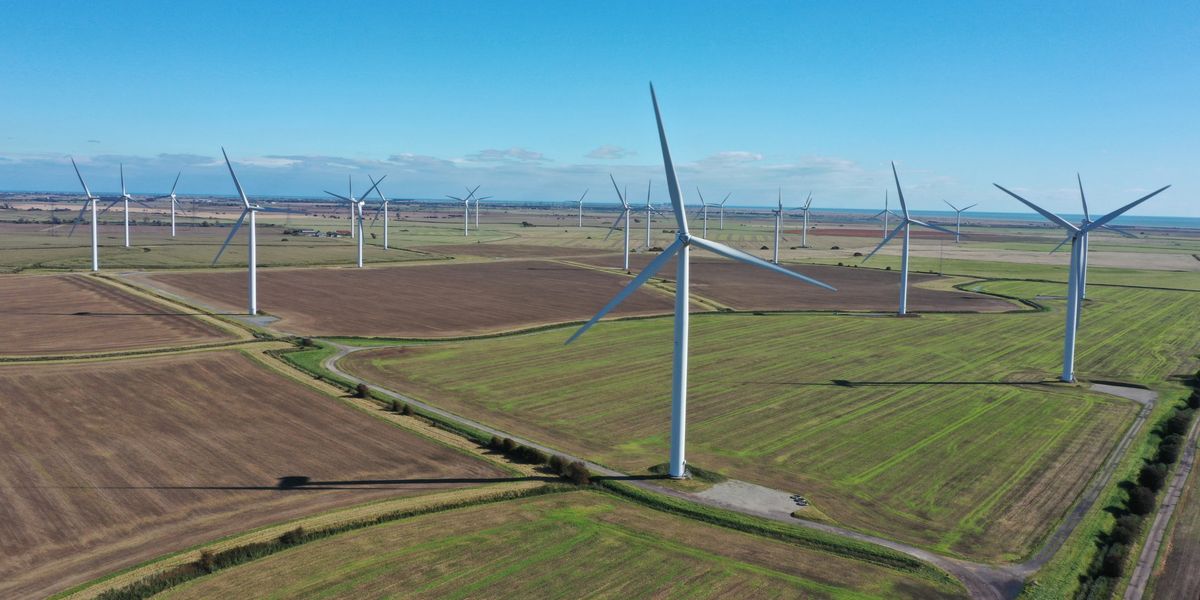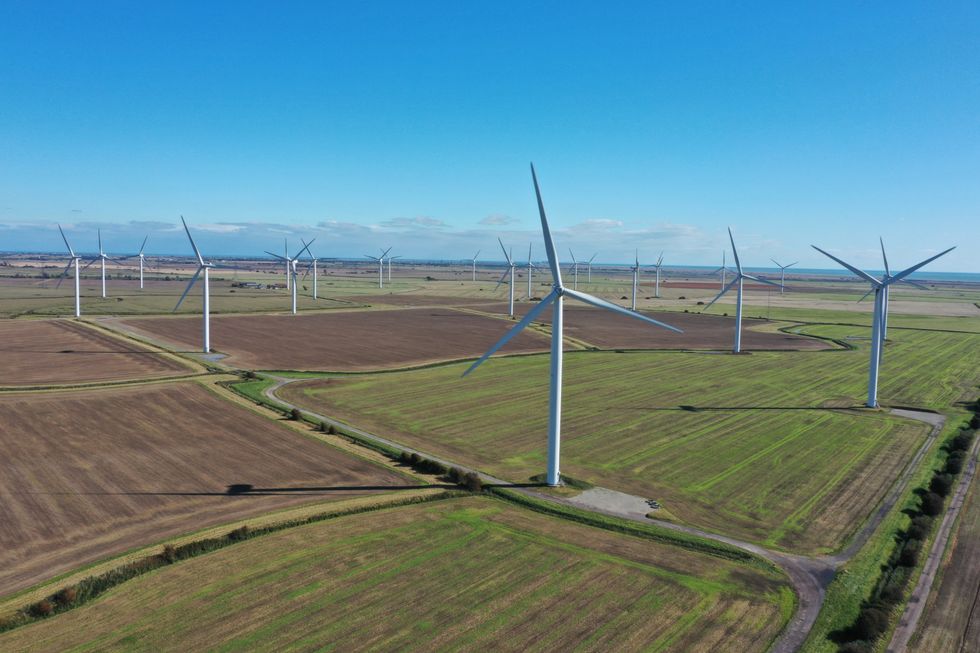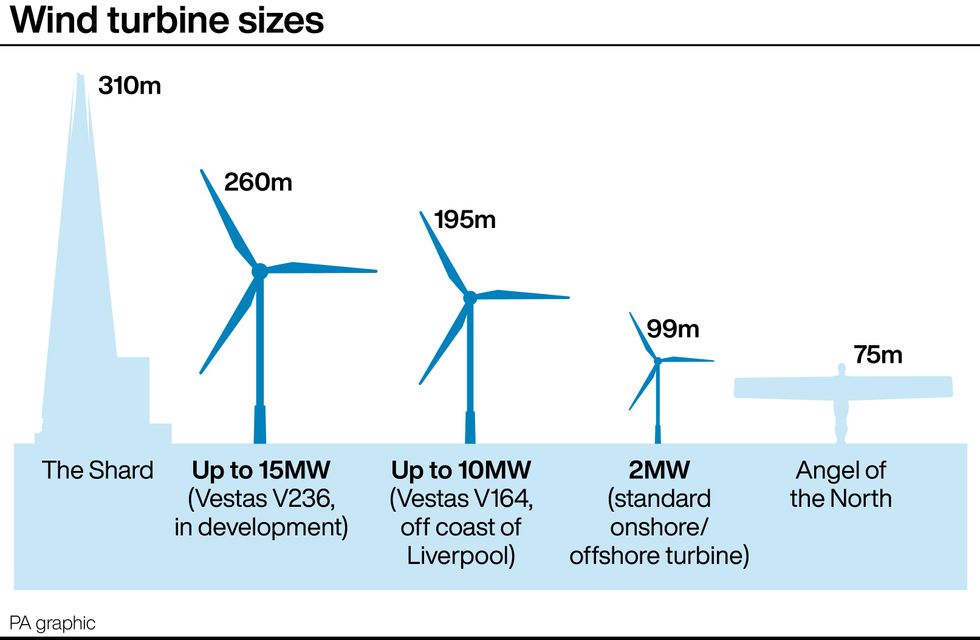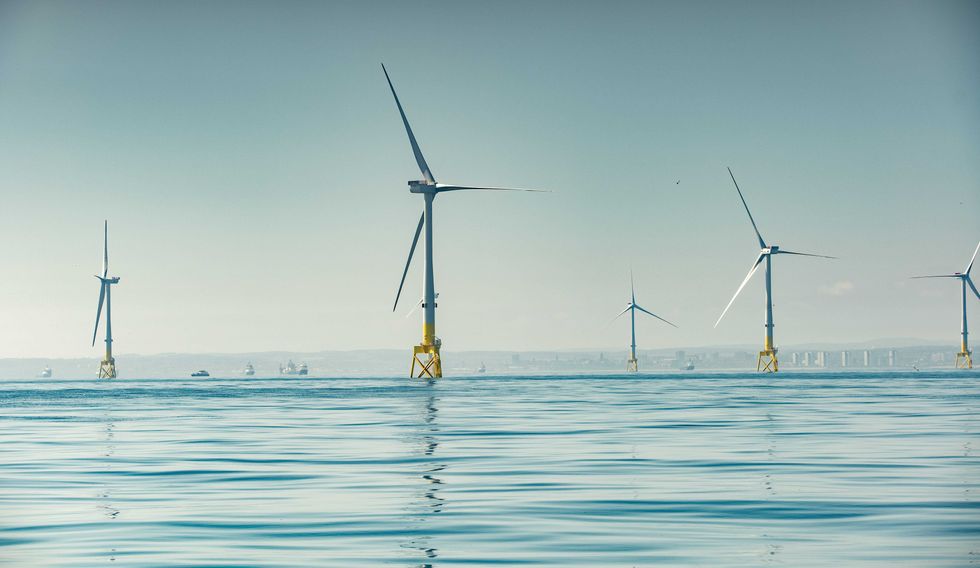



Britain could face blackouts lasting up to two weeks because the Government has failed to account for the country’s unpredictable weather in its drive towards Net Zero, energy experts have warned.
A major study, carried out by engineering academic Professor David Walwyn and Cambridge University engineering expert Tony Stephens, has found the UK’s energy system is vulnerable to long periods of calm weather, when wind turbines generate almost no power.
Wind energy is at the heart of the Government’s green plans, with a pledge that 95 per cent of the UK’s electricity will come from ‘clean’ sources by 2030.
But researchers say the strategy is based on “overly optimistic” modelling that underestimates the impact of so-called “wind lulls” — periods lasting up to 14 days when there is little or no wind across the country.
Professor Walwyn, of the University of Pretoria, said: “We’ve studied this in depth using historical weather records. Wind lulls are both in winter and summer, are unpredictable and not infrequent, yet they’ve been ignored in the official energy models.”
“If you quadruple the number of wind turbines, it won’t make any difference when there’s no wind. The system simply won’t generate enough electricity, and people will be cut off from supply.”
The study compared real-world data with the National Energy System Operator’s (NESO) official predictions. It found that NESO’s models do not factor in the risk of prolonged wind lulls and fail to state any confidence levels in their assumptions.
“We asked the modellers how confident they were in their forecasts,” said Prof Walwyn. “They didn’t give us a clear answer. These reports were published without proper scrutiny.”

Wind turbines
PA
The UK currently stores just 7.5 days’ worth of gas for winter emergencies. By comparison, France and Germany hold months of backup reserves. Experts say this leaves Britain dangerously exposed if renewables underperform.
“In South Africa, we call this ‘load shedding’ — when you can’t match supply with demand, the grid collapses,” said Prof Walwyn.
“In the UK, that could mean seven to 14 days without sufficient power for the whole country.”
Emeritus Professor of Engineering at Cambridge University, Michael Kelly, who has reviewed the research, said: “Studies like these haven’t been given enough attention in the rush to net zero. The risks are real and threaten the viability of these major investments.”
Prof Kelly, a Fellow of both the Royal Society and the Royal Academy of Engineering, added: “If this study is correct, we’ll have wind turbines sitting idle and no backup from gas-fired power stations, because they’ll have been shut down.
“That would lead to blackouts — like the one that recently hit Spain — but potentially lasting more than a week.”

Wind turbine sizes
PA
“Critical infrastructure like hospitals and air traffic control would be especially vulnerable if they rely on wind or solar for backup.”
The study claims that increasing the UK’s wind generation capacity from 20 GW to 30 GW would bring negligible extra carbon savings, while adding £120billion to the cost.
Reaching the Government’s 2030 target of 78 GW wind and 74 GW solar would cost another £40billion — yet still would not prevent blackouts during lulls.
“This expansion is uneconomic,” said Prof Walwyn. “You wouldn’t buy a second unreliable car if the first one kept breaking down — you’d fix the reliability problem.”
“We assume building more turbines will deliver energy security, but wind doesn’t work that way. We don’t have the storage technology to make it reliable.
“It’s not the volume that’s broken — it’s the dependability.”
The experts argue that instead of focusing on hitting carbon targets, the UK should prioritise grid resilience, including building larger gas reserves and investing in reliable backup systems.
The Government’s £22billion Net Zero plan also includes proposals for carbon capture and storage, small modular nuclear reactors (SMRs), and green hydrogen.
But Prof Walwyn warned these are “high-risk technologies” that are unproven at scale.
“Carbon capture is still experimental. Green hydrogen isn’t scalable in the time available. Yet we’re relying on them to balance the grid,” he said.
He added: “This is wishful thinking, not sound engineering.”

Offshire wind turbines
PA
Even if carbon capture succeeds in reducing emissions, the report says it will do nothing to prevent power shortages during wind lulls.
“The current strategy ignores the real issue: renewables are intermittent, and the backup isn’t in place.”
The potential economic cost of energy shortages could be severe. It is estimated that serious blackouts could cut GDP by one to two per cent per year — hitting industry, healthcare, transport, and national security.
“This isn’t a minor inconvenience,” said Prof Walwyn. “It affects everything.”
He warned that without urgent changes, Britain faces regular energy crises.
“Every four years, we see a major wind event that the system can’t handle. Without adequate backup, we’ll see blackouts.”
He concluded: “I’m not against the energy transition. Britain can and should reduce emissions. But there’s no sense in sacrificing energy security and imposing unnecessary costs on households for a strategy that isn’t proven to work.”
A spokesman for the Department of Energy Security and Net Zero said: “These claims are categorically false – the National Energy System Operator factors in the impact of wind lulls in its research.
“Our robust electricity system is already set up to cope with such scenarios. As we transition to net zero, we will continue working with our partners to ensure the safe, secure and resilient supply of electricity across Great Britain.
“Our varied sources of gas supply means that the UK is less reliant on gas storage than some European countries and early analysis shows a positive outlook for the UK’s energy supply, which is expected to meet demand this winter thanks to our diverse and resilient energy system.”
A spokesman for NESO, which runs the Government energy system, added: "NESO's Clean Power for 2030 advice to government is robust and incorporates our operational and modelling expertise from many years of expertly operating Great Britain's electricity system.
"We take our primary duties seriously, which includes ensuring security of supply for current and future customers and we categorically challenge these false claims on our modelling approach and assumptions.
"We use electricity market dispatch modelling, with a wide range of historic data that includes variations on wind and solar output covering periods of very high, average / typical and very low renewable output, which can last for short or extended periods."
A spokesman for the Department of Energy Security and Net Zero said: "These claims are categorically false – the National Energy System Operator factors in the impact of wind lulls in its research.
"Our robust electricity system is already set up to cope with such scenarios. As we transition to net zero, we will continue working with our partners to ensure the safe, secure and resilient supply of electricity across Great Britain.
"Our varied sources of gas supply means that the UK is less reliant on gas storage than some European countries and early analysis shows a positive outlook for the UK’s energy supply, which is expected to meet demand this winter thanks to our diverse and resilient energy system."
A spokesman for the Government backed National Energy System Operator (NESO), which runs Britain's energy system, said: "NESO's Clean Power for 2030 advice to government is robust and incorporates our operational and modelling expertise from many years of expertly operating Great Britain's electricity system. We take our primary duties seriously, which includes ensuring security of supply for current and future customers, and we categorically challenge these false claims on our modelling approach and assumptions.
"We use electricity market dispatch modelling, with a wide range of historic data that includes variations on wind and solar output covering periods of very high, average/typical and very low renewable output, which can last for short or extended periods."
